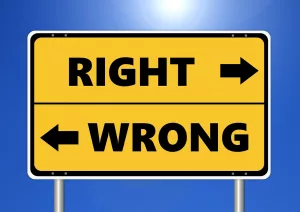“The language is the heart of the people: if the language dies, people die.”
Ivan Ogienko, a Ukrainian linguist
The establishment of a nation is inextricably related to the development of its language. Language is present in all elements of social life, cognitive and creative processes, and every instant of human awareness. It is also the most effective medium of human communication. Language has a direct relationship with thinking. There can be neither thought nor language without the other. Language and thought have a fundamentally social aspect, not merely by nature, but also by function in society. Through thought, people gain knowledge about the world, the objective rules of nature, and culture. Only linguistic material, words, and sentences enable human cognitive activity and reasoning. Thought and its carrier – language – govern every instant of activity. Only via language does everything achieved by earlier generations not die in vain, but instead serve as a basis for humanity’s future evolution.
Taking into account the historical context and ongoing war, I will talk about the importance of language in the context of Ukraine. There are many arguments about countries with more than one official language, Switzerland has four official languages and they are thriving (German, French, Italian, and Romansh); four languages are recognized in the Netherlands as well(Dutch, Limburgish, Frisian, and Papiamento), etc… And why can’t there be a Ukraine with two official languages – Ukrainian and Russian, if a significant part speaks Russian? The answer is extremely easy, this is the language of the enemy. Those who came to “liberate” the Russian-speaking people in Ukraine now, talk in Russian. Russian was spoken by those who were destroying the ancient Ukrainian language in the 17th century and called it the “Little Russian language” – a dialect.
In Ukraine, the fight for a new language code, as well as the establishment of a suitable legal framework and infrastructure, proved to be lengthy, multi-staged, and difficult. The mercenary bureaucracy actively stalled these procedures in some areas, turning the Ukrainian language into a contemporary political commodity. This would not have occurred if Russia had not been an interested external (and hence unlawful) player in Ukrainian domestic affairs. The Russian-Ukrainian relations enforced patterns that made it hard for the Russian language to leave the area and for Ukrainian to be acknowledged as the state language through its political, financial, and media agencies, as well as the removal of Russians from these posts. Ukrainian-Russian bilingualism, recognition of the Russian language as an official language on the entire Ukrainian territory or at least in some districts, and the notion of a Russian-speaking populace and Russian peace were all proposed.
However, the Ukrainian language was able to overcome all of these constraints, both legally and, to a significant part, practically, despite the fact that this occurred with very catastrophic repercussions. Russification of Ukraine would turn it not into Switzerland, but first, into Belarus, a state that has been Kremlin’s puppet ever since its sovereignty, then to a region of Russia. Because the empire does not allow two languages to coexist, it wishes to suppress Ukrainian. The Imperialistic regime wishes to totally replace it with Russian, and hence with their meanings.
A favourite manipulation of those who promote Russian narratives is about Russian-speaking soldiers defending Ukraine. This is an absurd argument, since Ukraine is a free country, and no one controls the language of private communication. In privacy, everyone can speak any language they desire. However, as a component of the Ukrainian state, the language is public, and the culture is Ukrainian for all those who struggle for Ukraine. This is the situation now and has been since 2014, when troops of various nationalities, regardless of language, stepped up to protect Ukraine from Russian “peacekeepers”.
Russification seeks to undermine the basic basis of Ukrainian statehood. The language legislation is founded on a straightforward principle: total freedom to select the language of private communication and maximal protection of the Ukrainian language in all public arenas. The overwhelming majority of Ukrainians approve of this strategy, including those who speak Russian at home. This exact strengthening of the Ukrainian language brought Ukrainians together. Language represents unity. The Russian invaders were met with such a unified populace, which they still seek to destroy. It’s no accident that one of their primary requests was “protection of the Russian language.” This effectively signifies the annihilation of the Ukrainian language and the Ukrainian nation. In the Ukrainian liberation fight, language is a weapon. That is why it is critical to remove Russian forces from Ukraine in order to preserve boundaries, especially linguistic ones.
Language is more than simply a means of communication; it is also an important part of a country’s identity and cultural legacy. Ukraine has encountered major hurdles in its battle to retain its language and protect its statehood, but its people have remained united in their commitment to defend their language and the freedom of their country. The Ukrainian language is more than simply a method of communication; it is also a symbol of solidarity and resistance against external forces attempting to undermine the country’s sovereignty. The preservation of the Ukrainian language is crucial to the preservation of the Ukrainian nation’s identity and future. Let us never forget that language is a people’s heart and a nation’s soul.
Featured image retrieved from https://www.worldatlas.com/geography/difference-between-a-state-and-a-nation.html







